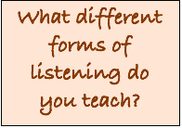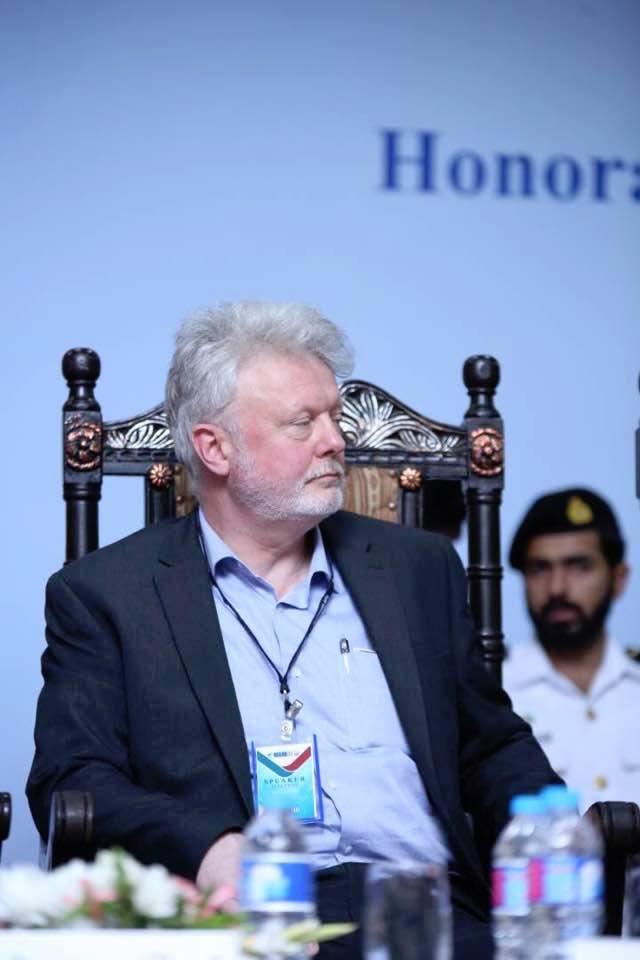 In the previous post, I discussed the matter of trust in a school community. I hope you considered the approach and found something of interest and value to your community. To have high levels of trust, members of a community need to communicate effectively and with sensitivity. The opposite is of course true also – to communicate effectively one needs trust. Schools often place a great importance in helping young people communicate well (would you agree?). Essays, reports, posters, artwork, presentations, etc are all taught in our schools (aren’t they?) Teachers are usually quite good at communicating with their learners about their subjects and about the tasks they set (aren’t they? I mean they always make the subjects come alive - although they were not dead in the first place of course - and never make their subjects dull – true?) However, how good are your teachers at communicating between themselves (now we are on the real topic for this article). How good are your learners’ parents at communicating with you? How good are your young people at communicating with their parents, each other, their teachers, or with you? How good is the school at communicating with its community? One aspect of communication is sometimes neglected and that’s ‘listening’. Imagine you are in agreement that most children can, with the right conditions, be taught to write an essay. You can explain the structure of an essay after all. I imagine that readers here agree that most children can be taught to write. Not only that but to be able to write in different ways and use different styles. You hopefully teach your young people how to read in a variety of ways – reading for pleasure, reading for meaning, reading for understanding, skimming, scanning, etc. And speaking, I am sure you teach your young people to speak in different ways so that they are used to presenting to a variety of audiences, explaining an idea to a class, being concise and giving way in group discussions, chatting with friends and a variety of people of different ages and genders in hierarchies all requiring different forms of address and etiquette. This all happens in your school, doesn’t it? So how about listening? It’s important is it not? I am sure you listen to your teachers, young people’s parents, staff, and to your learners? You do listen to them, don’t you? Do they have opportunity to allow you to listen? And how do people role play listening in your school? What different forms of listening do you teach? Indeed, is it commonly understood that there are different ways of listening in your school community? Perhaps: listening for pleasure, listening for meaning and understanding, listening for awareness, listening to oneself, listening distractedly (for inspiration and ‘big-picture thinking’), non-judgemental listening, and so on. Summing up, we need to have communication in school communities, but for a learning community to be successful, we need effective and sensitive communication. That means good communication needs trust but that it will also help develop trust. If I, as a lowly employee or new teacher or as a young learner in your school, feel comfortable in communicating my ideas or concerns to others in the school, without being put down, mocked, or dismissed, then trust builds not only for me but for everyone who sees that. If, on the other hand, I am not listened to, then, not only am I less willing to communicate again, others will feel more reluctant to communicate also in fear of the same result. People fear rejection in whatever form it takes. How can we develop channels of effective communication within our communities? Are we ready to ask people what they think? Are they enabled to provide us with truthful answers? Are we ready to listen to and act on those answers? Are we ready to explain why we do things in a certain way when our methods are questioned and are we ready to change our ways when their questions cause us to critically reflect and see improvements we could make in the light of their questioning? If your community communicates well, effectively, freely, and with sensitivity and respect, then you surely have a learning community where high levels of trust exist and where you are getting the most out of your collective intelligence, experience and wisdom. Along with high levels of trust and communication, we need also to look at collaboration. That may be a good topic for next time. Robert Thorn robert.thorn@developingreallearners.org
0 Comments
Leave a Reply. |
Archives
May 2020
Categories |
Developing Real LearnersDRL provides expert help and guidance to communities and individuals aiming to create learning communities that help young people develop into the best holistic learners they can be
|
SerVices |
|


 RSS Feed
RSS Feed